It Ends Or It Doesn’t. That’s What You Say. That’s How You Get Through It. The Tunnel, The Night,
It ends or it doesn’t. That’s what you say. That’s how you get through it. The tunnel, the night, the pain, the love. It ends or it doesn’t. If the sun never comes up, you find a way to live without it. If they don’t come back, you sleep in the middle of the bed, learn how to make enough coffee for yourself alone. Adapt. Adjust. It ends or it doesn’t. It ends or it doesn’t. We do not perish.
Caitlyn Siehl (via wordsnquotes)
More Posts from Zella-rose and Others
“Find out what makes you kinder, what opens you up and brings out the most loving, generous, and unafraid version of you―and go after those things as if nothing else matters. Because, actually, nothing does.”
— George Saunders
I feel like narcissistic mothers go together with avoidant children like peanut butter and jelly. Actually, narcissistic mothers go together with a lot of things, kind of like you can have peanut butter and bananas, peanut butter and honey, peanut butter and marshmallow fluff…
Hey friend, in case no one told you today:
I just thought it may be a good time to tell you that you did great today. Even if things weren’t perfect, you did your best.
I see your hard work and I see how much it took to do the thing. Great job!
I’m really proud of you.
The secret about self esteem
You don’t actually have to love yourself to be happy, healthy, and stable. Here are some beliefs that you can work towards instead
- no one deserves bad treatment, including you - You deserve to be treated with self kindness & to meet you own physical and emotional needs - Physical appearance isn’t the most important thing, and even if you’re unattractive you deserve to be able to live your life without shame - that no one is expected to be perfect at everything they try, and that it’s ok to enjoy things you aren’t good at - It’s more interesting and fun to focus your thoughts outward on the world and other people than to think about how much you like or dislike yourself - That everyone makes mistakes and does embarrassing things, and that an embarrassing event might feel really terrible but it’s not actually a threat - It’s not worth obsessing over whether you are a good or bad person, bc those things don’t really exist. (There are only good & bad actions; humans are way too complex & ever changing to fit into black & white labels) - Your thoughts and emotions are as valid & real as anyone else’s
Basically, the goal with all of this is to accept that you can treat yourself with self compassion. It is going to be near impossible to be happy if you constantly tear yourself down, or if you don’t respect needs, but it’s definitely possible to be happy feeling pretty meh about it.
I recommend focusing on things you believe are true for all people, then working back to yourself (for example, that everyone deserves to be treated kindly, that physical appearance isn’t shameful, that everyone makes mistakes, etc). Make self kindness the goal. When you are being mean to yourself, remind yourself to be kinder. If you feel horrible about a mistake remember you are only human. And the rest of the time? Pour your energy into creating meaningful activities in your life. Make art, chase goals, call friends, read books, learn, create, engage. You will find the works is much bigger and brighter when you make room for something besides self criticism.
Hm... I definitely have some dependent traits. But some borderline traits, too, and a few NPD.
(I have a theory that AvPD, BPD and NPD are different expressions of the same core issue. They all circle around a very particular kind of shame, which is why we can all learn a lot from each other. I’ll have to do more research before I can figure out if DPD fits the same pattern though)
I believe I have both avpd and dpd, but it's kind of confusing for me. Do you think that's possible, and if so how do you think a person with both would behave (for comparison to myself)?
I think DPD is confusing for a lot of people, so don’t worry, you’re not alone in that. But AvPD and DPD is actually a really common co-morbidity, as you can see by the data at this link: here. (Beware of Out of the FOG in general, but it’s the only site that has statistical data on these things.) Plus, PDs are most co-morbid with other ones in the same cluster.
Someone with both AvPD and DPD would probably have a pronounced relationship with a “safe person”, I imagine. Who in this case would also be what I think the majority of the DPD community refers to as their “depended”. But while most people with DPD seek validation and dependence from many people, and rely on the opinions of others for whatever they do, I think people with AvPD as well would mainly focus on the one person, and be terrified of engaging with others, even if they wanted to.
But experiences will vary, as they always do. There are a myriad of experiences for any disorder, so matter what the clinical expectation is. Some people suffer from some symptoms more than others.
I hope that helps!
- Shinji

no idea if this is true, but it feels true
so heres a thing my mother always said to me growing up when i broke something on accident that i think is really important
and i know, from watching my friends and seeing their panic and terror when something broke, that not only were not nearly enough children told this thing, many children were punished in place of being reassured
and thats heartbreaking
so heres the words from my mom that i was always told, and theyre the same words that anyone who never got to hear them should hear now, courtesy of my mom, who has repeated those same words to many a friend of mine and now to you
if i ever broke anything, the first words out of her mouth would always be and have always been, “are you hurt?”
i would say no
she would say, “thats okay, then”
and i would ask why
and she would say “because it was just a thing- even if its a nice thing, or an old thing, or an expensive thing, its still just a thing. it can be replaced, or we can live without it. there is only one you. there will only ever be one you. you will always be more important than just some thing.”
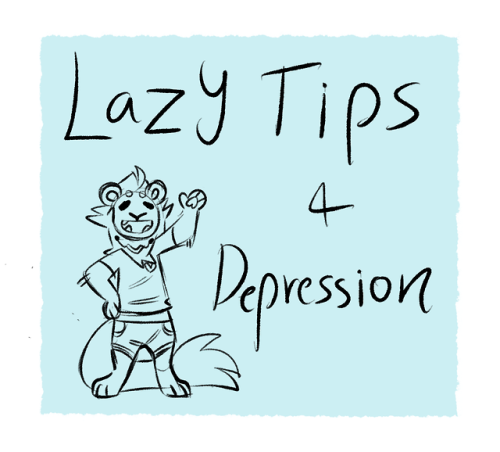
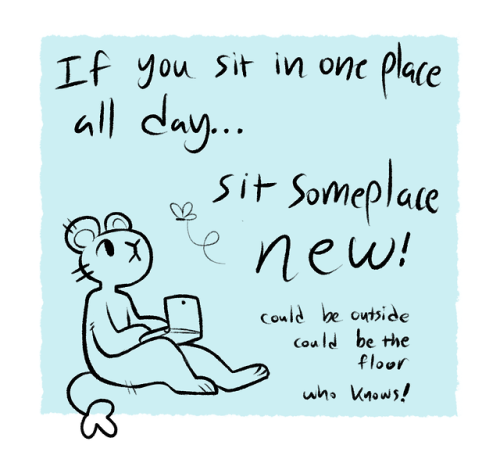
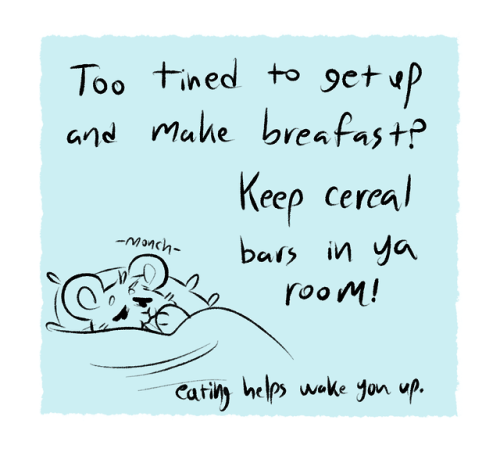
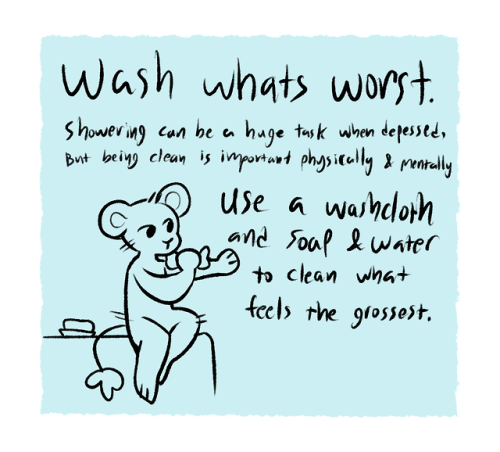


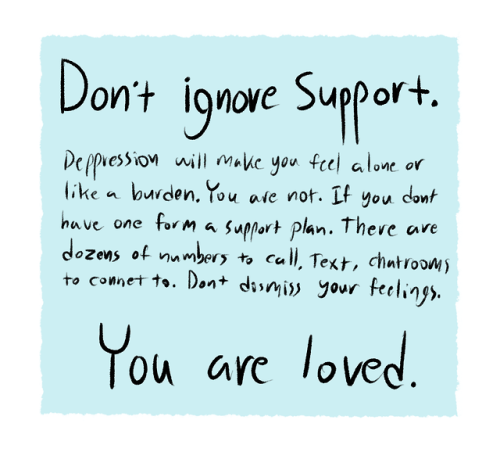
tips n tricks for cool kids Add your own tips if you got em!
“So much harm comes into this world when the wrong thing is said. But that’s nothing compared to the pain from what goes unsaid.”
—
Brad Meltzer
(via purplebuddhaquotes)
-
 sillygoose04 liked this · 5 months ago
sillygoose04 liked this · 5 months ago -
 a-quietdream liked this · 1 year ago
a-quietdream liked this · 1 year ago -
 bellumblake liked this · 2 years ago
bellumblake liked this · 2 years ago -
 paleboyblue reblogged this · 3 years ago
paleboyblue reblogged this · 3 years ago -
 windinnsurgin reblogged this · 3 years ago
windinnsurgin reblogged this · 3 years ago -
 megalokalypse liked this · 3 years ago
megalokalypse liked this · 3 years ago -
 doctorwhowatchesthewatchmen liked this · 3 years ago
doctorwhowatchesthewatchmen liked this · 3 years ago -
 certain-obscure-things liked this · 3 years ago
certain-obscure-things liked this · 3 years ago -
 ofhouseadama reblogged this · 3 years ago
ofhouseadama reblogged this · 3 years ago -
 primaveraj reblogged this · 3 years ago
primaveraj reblogged this · 3 years ago -
 wingedbatbearfriend reblogged this · 3 years ago
wingedbatbearfriend reblogged this · 3 years ago -
 wingedbatbearfriend liked this · 3 years ago
wingedbatbearfriend liked this · 3 years ago -
 borrowednblue reblogged this · 3 years ago
borrowednblue reblogged this · 3 years ago -
 runesorceress liked this · 3 years ago
runesorceress liked this · 3 years ago -
 soforgetsummer reblogged this · 3 years ago
soforgetsummer reblogged this · 3 years ago -
 observers-book-of-rothko liked this · 3 years ago
observers-book-of-rothko liked this · 3 years ago -
 acthere reblogged this · 3 years ago
acthere reblogged this · 3 years ago -
 flame-cat reblogged this · 3 years ago
flame-cat reblogged this · 3 years ago -
 flame-cat liked this · 3 years ago
flame-cat liked this · 3 years ago -
 louisianna liked this · 3 years ago
louisianna liked this · 3 years ago -
 rainbyotes liked this · 3 years ago
rainbyotes liked this · 3 years ago -
 delicatefalice reblogged this · 3 years ago
delicatefalice reblogged this · 3 years ago -
 delicatefalice liked this · 3 years ago
delicatefalice liked this · 3 years ago -
 remadoras reblogged this · 3 years ago
remadoras reblogged this · 3 years ago -
 zoryaborealis reblogged this · 3 years ago
zoryaborealis reblogged this · 3 years ago -
 sanola reblogged this · 3 years ago
sanola reblogged this · 3 years ago -
 notoutofthewoods-yet reblogged this · 3 years ago
notoutofthewoods-yet reblogged this · 3 years ago -
 notoutofthewoods-yet liked this · 3 years ago
notoutofthewoods-yet liked this · 3 years ago -
 bpdwandamaximoff reblogged this · 3 years ago
bpdwandamaximoff reblogged this · 3 years ago -
 bpdwandamaximoff liked this · 3 years ago
bpdwandamaximoff liked this · 3 years ago -
 windinnsurgin reblogged this · 3 years ago
windinnsurgin reblogged this · 3 years ago -
 wheredidileavethatfire reblogged this · 3 years ago
wheredidileavethatfire reblogged this · 3 years ago -
 wheredidileavethatfire liked this · 3 years ago
wheredidileavethatfire liked this · 3 years ago -
 stupidstubbornbravebitchoftarth liked this · 3 years ago
stupidstubbornbravebitchoftarth liked this · 3 years ago -
 bayntons reblogged this · 3 years ago
bayntons reblogged this · 3 years ago -
 tes-situra reblogged this · 3 years ago
tes-situra reblogged this · 3 years ago -
 ohmoriartea reblogged this · 3 years ago
ohmoriartea reblogged this · 3 years ago -
 woundsetal reblogged this · 4 years ago
woundsetal reblogged this · 4 years ago -
 deonallensblog liked this · 4 years ago
deonallensblog liked this · 4 years ago -
 dangerouslyenchantingstrawberry liked this · 4 years ago
dangerouslyenchantingstrawberry liked this · 4 years ago -
 rising-from-ashes liked this · 4 years ago
rising-from-ashes liked this · 4 years ago -
 amatthewz reblogged this · 4 years ago
amatthewz reblogged this · 4 years ago